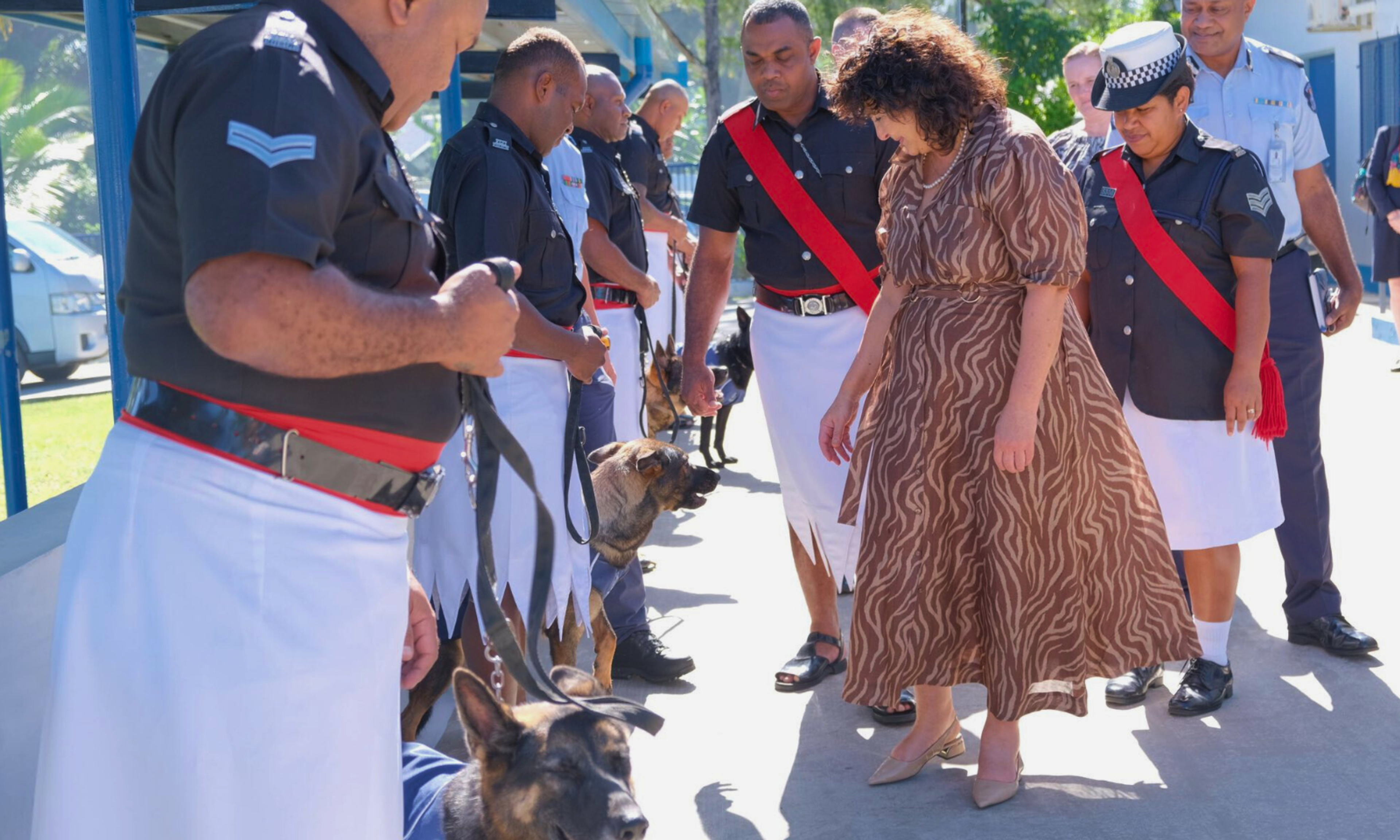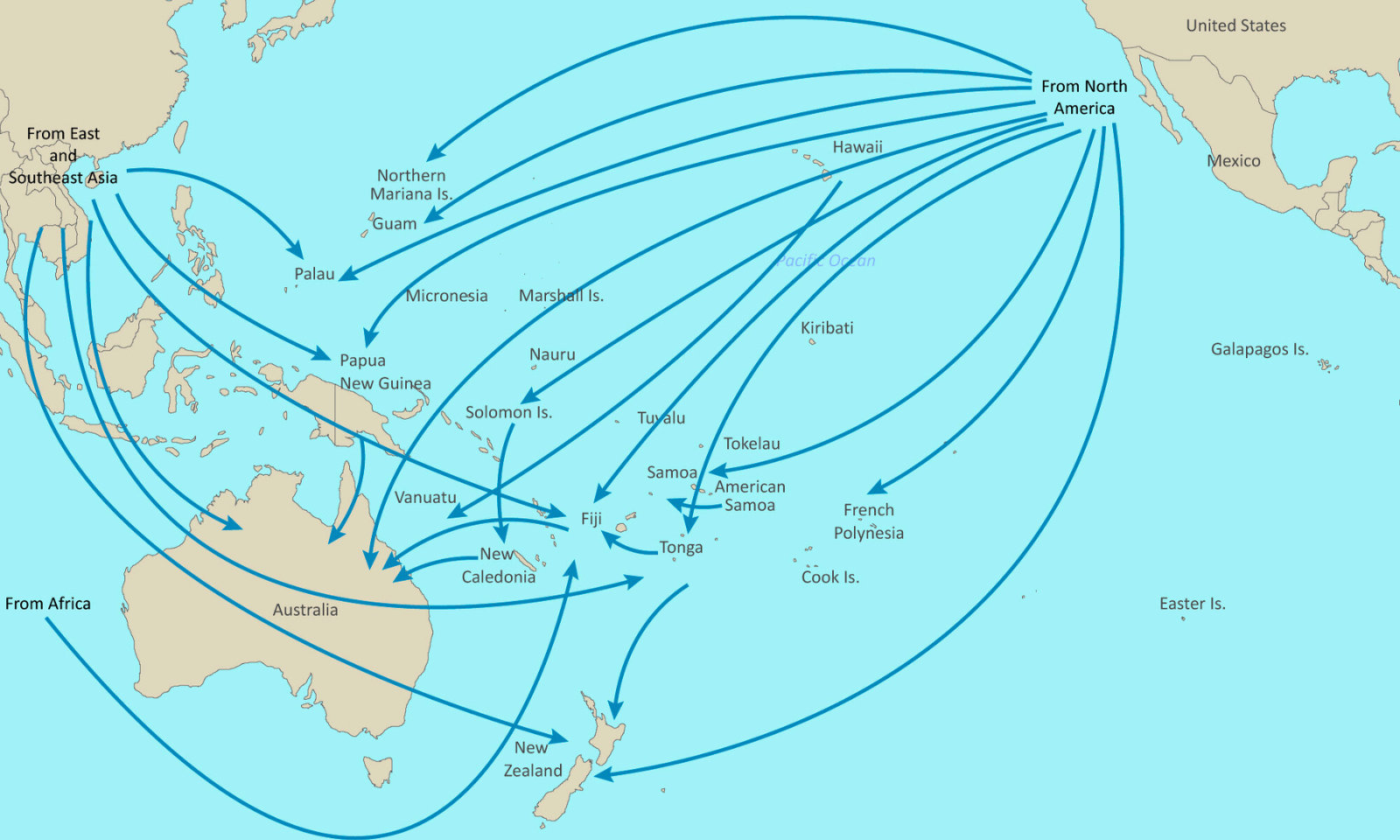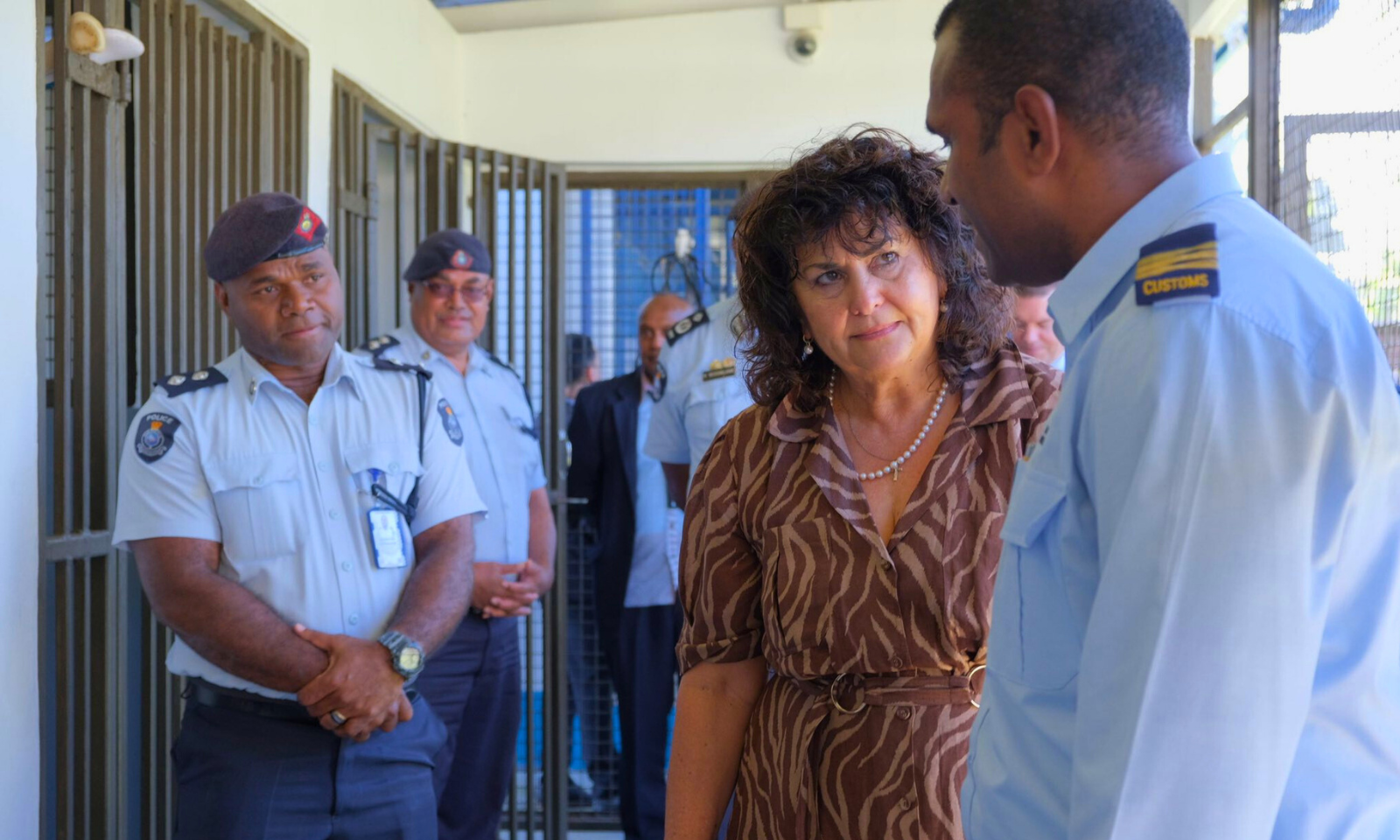

Minister Costello meets the furry front line of Fiji's Customs Services.
Photo/NZ High Commission-Fiji
NZ backs Fiji’s fight against organised crime and human trafficking
Customs Minister Casey Costello says island nations are being exploited as entry points into Aotearoa and warns of the human cost.




Moana Pasifika end Lautoka curse to win 'Battle of the Pacific'



Budget relief buys time for Ōtara-Papatoetoe, but pressures remain


Moana Pasifika end Lautoka curse to win 'Battle of the Pacific'

A recent visit to Fiji by New Zealand’s Minister for Customs, Casey Costello, is aimed at supporting efforts to push back against the growing presence of organised crime networks and human trafficking across the Pacific.
In an interview with Pacific Mornings, Costello says New Zealand has a responsibility to protect island partners like Fiji, which serve as key gateways into the country.
Smaller islands and their communities, she says, are particularly vulnerable to infiltration, with weak border controls being exploited and creating greater opportunities for human trafficking.
In January last year, Fijian police seized more than four tonnes of methamphetamine in Nadi – a busy tourist hub and home to one of the region’s key ports and airports.
Roughly 1200 kilometres away in Sāmoa, the drug trade is also gaining ground. In January, a local businessman was arrested after authorities discovered a $2.4 million methamphetamine shipment linked to his supermarket.
In an interview with 1News, Jose Sousa-Santos, transnational crime expert at Canterbury University, says Sāmoa is now where Fiji was just three years ago.

The UN Office on Drugs and Crime (UNODC) map of drug routes through the Pacific.
“What we’ve seen is that since the larger number of deportees from the United States, from Australia and from New Zealand, coming to Sāmoa and reaching out to counterparts in Australia, New Zealand and the United States, creating their own lines of drug smuggling,” Sousa-Santos says.
The 1News report also reveals Sāmoan children are being trafficked in exchange for meth. In Fiji, human trafficking within the country’s borders is on the rise, with people, often from the outer islands, essentially being sold to settle drug debts.
Costello says it is a horrible reality, and one that reflects the human cost of the methamphetamine trade. She says controlling illicit activity ultimately depends on controlling the flow of money.
While she is encouraged by Fijian authorities’ willingness to collaborate with New Zealand, especially in sharing financial intelligence, she admits the reality is illicit trade will always follow legitimate trade, exploiting weak links.
“Organised crime is a business model,” Costello says. “Whether it’s drugs, people, or money laundering – if there’s a profit to be made, they’ll exploit it.”
Still, she sees progress.

Costello visits with members of Fiji's Customs Services. Photo/NZ High Commission-Fiji
Changing attitudes towards drug-related harm among New Zealand’s neighbours is a step forward, and Costello says high-level Fijian officials are now actively engaged in recognising the real harm being done to their most vulnerable.
During her visit, she met with her Fijian counterparts, including Deputy Prime Minister Biman Prasad, who reaffirmed Fiji’s commitment to strengthening border management and adopting best practices in customs.
“What is encouraging is that for a long time, this wasn’t something that was talked about,” Costello says.
“There has been a hesitancy around saying we have a problem. What I found was that the ministers were really engaged.
“They understood what the issues were, and they had taken the time and commitment to look into what the challenges are at their borders and for their people.”
Her trip forms part of a wider regional engagement strategy that spans customs, police, and government agencies.
Watch the Pacific Mornings interview below
One such programme includes the long-running Pacific Leadership Program (PLP), which supports leaders with practical tools to respond to day-to-day challenges and drive long-term strategic outcomes.
On the ground, New Zealand has also deployed uncrewed surface vessels, known as Blue Bottles, to assist with maritime surveillance and disrupt illegal activity in Fiji’s vast exclusive economic zone.
Costello says the vessels are already proving valuable in helping Fijian authorities identify and respond to high-risk threats more efficiently.
The newly established Maritime Essential Services Centre (MESC) is another key development, designed to monitor activity across Fiji’s numerous ports – a significant advantage for officials facing multiple possible entry points for vessels.
Costello says training is still in its early stages, with a focus on learning how to use the monitoring technology and coordinating inter-agency operations to ensure cohesive response efforts.
The minister confirmed she plans to visit Sāmoa next, once the country’s general election concludes.
She says her Pacific engagement is not driven by geopolitical pressure but by the need to combat serious transnational crime.
“Fiji intercepted over four tonnes of meth last year,” she says.
“That tells you these islands are already being used as gateways into our region.”